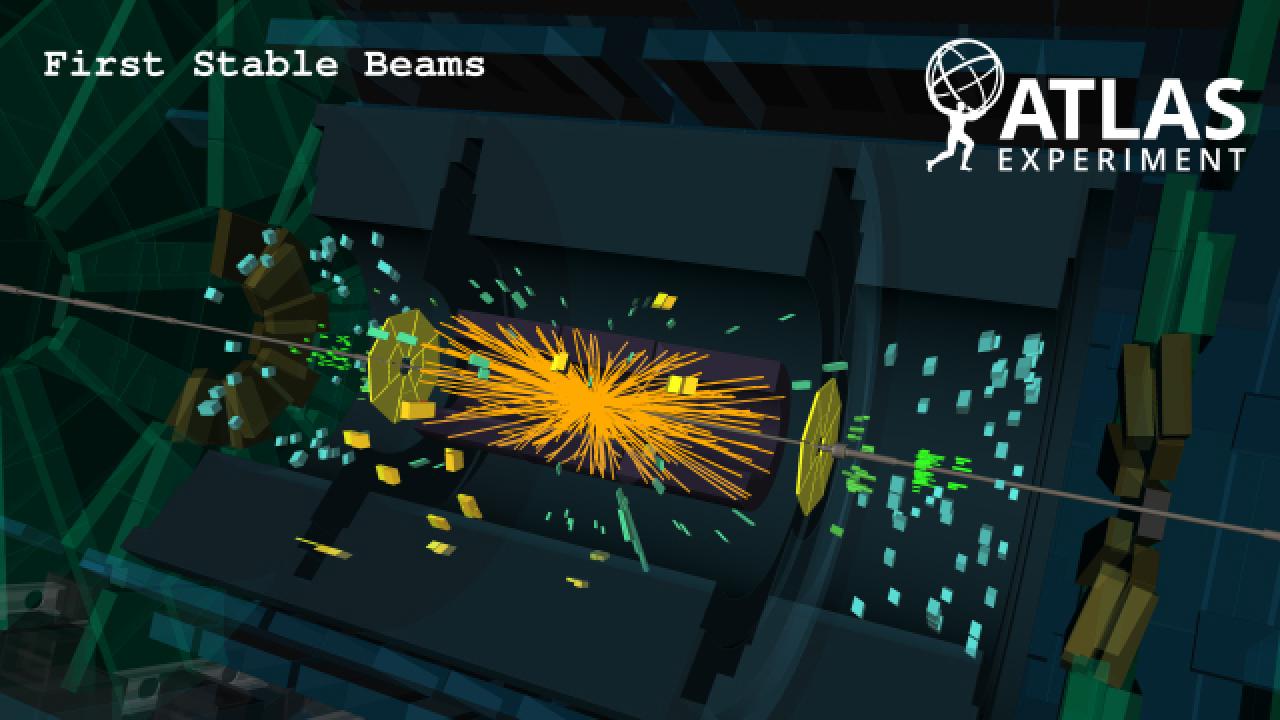
In an attempt to deepen our understanding of nature, CERN's Large Hadron Collider (LHC) today began recording physics data from proton collisions at record-setting energy levels of 13 TeV, allowing for precision studies of the Higgs boson and other Standard Model particles, as well as the search for new particles with higher masses.
ICTP and the University of Udine, working under the umbrella of the Italian National Institute of Nuclear Physics (INFN), have played an important role in ATLAS, one of four experiments that examine the debris of particle collisions at the LHC to discover new particles.
ICTP physicist Bobby Acharya, who leads ICTP's involvement in the ATLAS experiment, and ICTP postdoctoral fellow Kate Shaw were both in the LHC control room for today's record high energy run. "This is a true milestone which paves the way for physics discovery in the coming years," said Acharya, adding, "It is a remarkable achievement of the CERN accelerator division and the LHC experimental teams. The Udine/ICTP ATLAS group will be analysing the coming data to both look for signs of new physics as well as measure processes in the Standard Model which have never been seen before. This includes the measurement of the interaction strength between the Higgs boson and the top quark, and the search for supersymmetry."
Shaw, whose science road show "Physics without Frontiers" brings LHC science to students throughout the developing world, said, "Today was a historic day for experimental physics, where for the first time we collided stable proton beams at 13 TeV, 60% higher than ever before!" Shaw describes the first proton collisions at the higher energy level as " a fantastic moment," adding, "It was beautiful to see the detector working so well and reconstructing the tracks and energy deposits from the collision. This is the beginning of our journey to explore a new high energy region, to make measurements of our Standard Model of particle physics, and to search for new particles to help piece together our picture of the Universe."
The ICTP/Udine ATLAS group, co-led by Marina Cobal of the University of Udine and Acharya (who coordinates ICTP's involvement), has received generous funding from INFN.
Related resources:
















